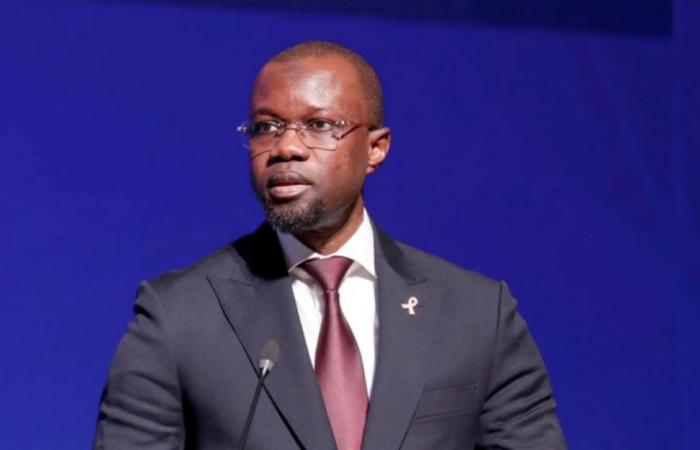Nearly nine months after his appointment, the Prime Minister of Senegal Ousmane Sonko took the floor on Friday, December 27, to present his general policy declaration before an almost full National Assembly.
The Prime Minister of Senegal, dressed in a white boubou, unveiled an ambitious program of economic reforms and announced the repeal of the amnesty law. This law, adopted on March 6 under former President Macky Sall, covered crimes committed between 2021 and 2024 during political protests. Amnesty International recorded around sixty deaths and numerous acts of torture during this period.
Priority to social justice
“It is not a question of revenge, but of justice, an essential basis for all social peace,” affirmed Ousmane Sonko. Himself benefiting from this amnesty law, he recalled his role in his release and that of current president Bassirou Diomaye Faye before the March 24 elections.
On Tuesday, a first step in this direction was taken with the inclusion in the 2025 budget of compensation for victims of pre-electoral violence.
A critique of the old regime
Ousmane Sonko did not mince his words regarding the economic legacy of the former power, denouncing a budget deficit of 10.4% of GDP and a public debt equivalent to 80% of GDP, according to figures from the World Bank. “We discovered the extent of the damage thanks to the audits we launched,” he stressed.
A more modest, but strategic budget
During his speech lasting more than two hours, he insisted on the need for a “break” with the old regime. This term, repeated 17 times, illustrated his vision of a Senegal freed from its dependence on the export of raw materials without added value.
Sonko has pledged to reduce public spending while improving its efficiency. “With a 2025 budget down 8.8%, we must learn to do better with less,” he said.
Ambitious tax reforms
Faced with declining international funding and insufficient internal resources, Ousmane Sonko proposed tax reform. He defended the idea of broadening the tax base, particularly tax rates, saying: “Making less pay, but making everyone pay is the key to fair taxation. »
In this context, he announced the upcoming creation of a diaspora bank and the launch of “patriot bonds”, loans intended to mobilize the savings of Senegalese abroad to finance major projects.
A sovereignist turning point
Under the applause of the Assembly, largely won over to his cause, Ousmane Sonko reiterated the announcement of the closure of foreign military bases, including those of the French army, on Senegalese soil. He also mentioned a policy of visa reciprocity for countries that impose it on Senegalese, reinforcing his sovereignist discourse.






